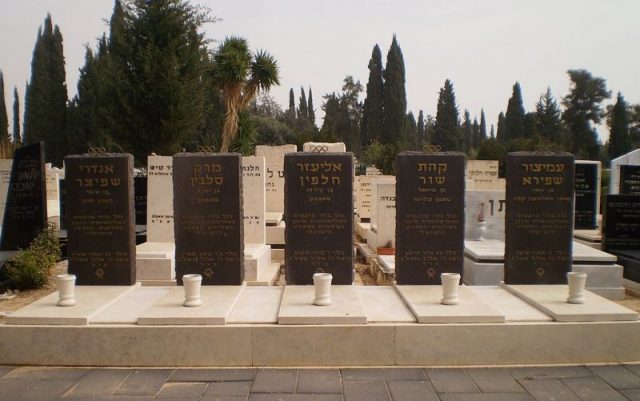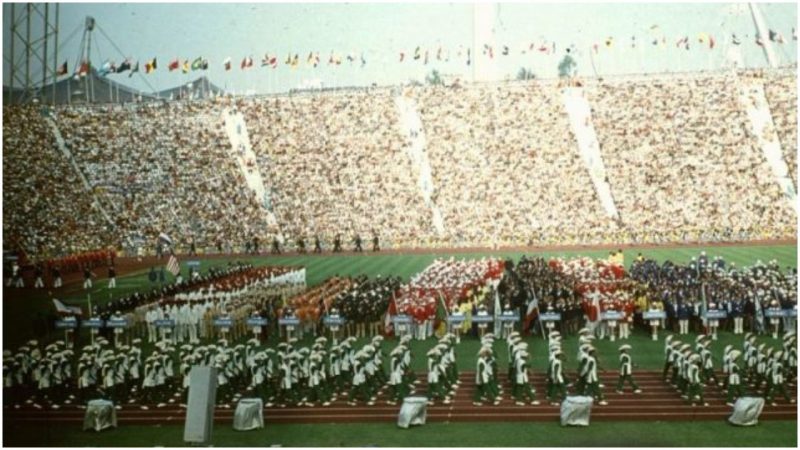The 1972 Olympic Games took place in Munich, West Germany, the first time the country had hosted the event since the games in 1936 under the Nazi regime. Fiercely opposed to Nazism and racism, Germany welcomed the nations around the world to promote and praise their best competitors in what was perceived as “The Peaceful Games” or “The Games of Peace and Joy.” To enhance the feeling of freedom, security at the event was minimal. But after 10 days of peace and sport, the world event turned into a tragedy when Palestinian terrorists killed eight Israeli competitors.
The 1972 Olympics has gone down in history as “The Munich Massacre.” On the evening of September 4, the Israeli team enjoyed their time watching the play Fiddler on the Roof, after which they all went to rest in their rooms. But in the early hours of September 5, eight members of the Palestinian terrorist group Black September sneaked into the Olympic Village and made straight for the building where the Israeli competitors were accommodated.
The terrorists were armed with Tokarev pistols, assault rifles, and grenades. The first two victims were the coach of the Israeli international wrestling team, Moshe Weinberg, and the weightlifter Yossef Romano, who attacked the terrorists. The attack began at 4:30 A.M., and by 5:10 A.M. authorities were notified and police officials stationed around the building. The terrorists then threw a piece of paper out of the window that contained their list of demands. They wanted 234 prisoners to be released from Israeli prisons, and another two from a German prison, and they demanded all this to be done by 9 A.M.

By noon, live television news reports of the 21-hour hostage standoff were being followed by 900 million people around the world. German negotiators managed to extend the deadline until noon, then for another hour, then for two more, and at 5 P.M., they finally agreed to the terrorists’ demands. But Israel didn’t. The Israeli Prime Minister at the time, Golda Meir, said “If we should give in, then no Israeli anywhere in the world can feel that his life is safe,” and rejected any further cooperation with the terrorists.
When the members of Black September realized that their operation had failed and their demands would not be met, they turned their attention to escaping. They demanded to be taken to Cairo in two planes, along with the hostages. Realizing that they couldn’t let the terrorists leave the country, especially not with the hostages, the Germans organized Operation Sunshine, which was supposed to storm the apartment building. However, their plan failed when the terrorists discovered it by watching TV. Another plan to take them down on the way to the airport was also uncovered, so the authorities agreed to fly the terrorists to Cairo.
They were taken in two helicopters to an airplane at the nearby Fürstenfeldbruck NATO air base, 25 miles from Munich. Apparently, the German authorities didn’t know that there were as many as eight terrorists, so they deployed only five police snipers to the air base. On top of everything, they were inadequately equipped and lacked any radio contact, which prevented them from proper coordination. In the meantime, Conrad Ahlers, the German government spokesman, declared that the operation of releasing the hostage operation was a success, which gave false hope to the concerned Israeli families.

The two helicopters landed at the air base, and while two terrorists exited to inspect the plane, the Interior Ministry of Bavaria ordered the military sharpshooters to open fire–which led to a two-hour gunfight. An explosion occurred when the terrorists detonated a grenade in one of the helicopters, incinerating the hostages and killing one German official. The athletes in the other helicopter were riddled with bullets. The German snipers killed five of the terrorists while three were imprisoned.
However, while awaiting their trial, a German Lufthansa airplane was hijacked on October 29. The demand was that the terrorists be released from the Munich trial in exchange for a safe landing of the airplane. The prisoners were immediately released.
![Memorial plaque in front of the Israeli athletes’ quarters. The inscription, in German and Hebrew, translates as:”The team of the State of Israel stayed in this building during the 20th Olympic Summer Games from 21 August to 5 September 1972. On 5 September, [list of victims] died a violent death. Honor to their memory.” Author: High Contrast CC BY 3.0](https://www.thevintagenews.com/wp-content/uploads/sites/65/2018/01/95-640x426.jpg)
“I’m proud of what I did at Munich because it helped the Palestinian cause enormously … before Munich, the world had no idea about our struggle, but on that day, the name of ‘Palestine’ was repeated all around the world.”
The 1972 Olympics are remembered as one of the saddest events in history. Subsequent Olympics have seen much tighter security to ensure the safety of athletes, support staff, and the public.
